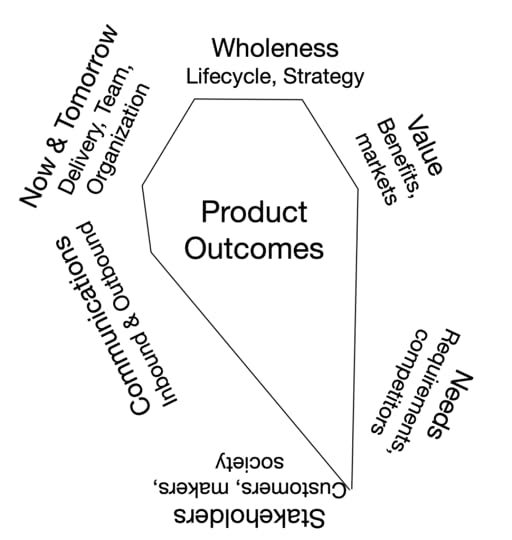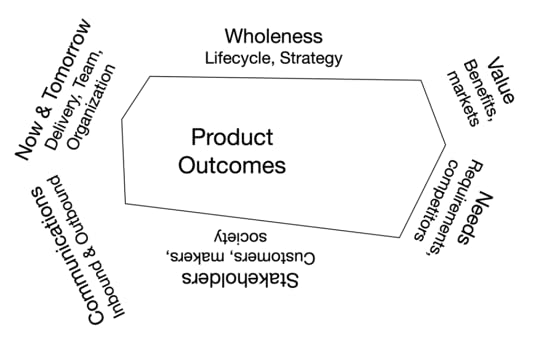What makes Product Managers hetrogenous

Even before I published my Product Management model I knew the model demanded more explanation to explain why it fitted the diversity of product manager roles. As luck would have it I had coffee with Peter Hilton on Friday where we compared and contrasted our recent experiences working as Product Managers. That conversation demonstrated to both of us just how difficult it is to pin down both Product Management and the Product Manager role. While both Peter and I reached Product Management from an early career as coders, and while we could recognise we had the same role we could also see a vast different in how we worked in that common role.
The thing is: coding is very similar everywhere, The coding role at a bank is not unlike the coding at an automotive supplier, which isn’t that different from coding at an ISV like Adobe or Microsoft. But the further removed you are lines of code the greater the difference in role.
So it is with Product Management – the environment you work in, the supporting roles present (or absent) and the stage in the product life cycle make it a very variable role.
Although the model I presented last time showed a hexagon with six equal sides that isn’t how it is going to be. Some Product roles will emphasis users and needs, consequently there will be less tie for strategy, communications, delivery working an value, the hexagon will look more like the one above.
Conversely, in my recent work it has looked more like this:

I found myself spending little time on user requirements and value but a lot more time on strategy, stakeholders and communications.
The interesting question to ask here is: what are the forces that shape the product managers role?
The obvious one is corporate environment: Peter has been working in a start-up while I’ve been in a big corporate environment. Peter had more reason to look at customers and how meeting their needs delivered value. Conversely, the needs of my “customers” were pretty limited but there were many other non-user stakeholders who needed attention and that meant a lot of strategy discussions.
The second force to call out is the stage of the product life cycle. In a typical start-up there is a search for market fit which means much more work on value in the market plus user needs and value. (I imagine the market fit discussion wrapping around the right hand side of the original hexagon.)
Perhaps the biggest variable in the mix is: the supporting roles present or absent in the organisation.
For example, if the company employs specialist user researchers then the Product Manager doesn’t need to spend so much time collecting and thinking about needs. Plus some of the inbound communication will be offloaded so those two dimensions are reduced.
Similarly, if the company employees user experience designers and project/delivery managers then the here and tomorrow work will be reduced. While in early stage start-up the Product Manager may need to cover outbound marketing communications (especially go-to-market) but in an established company there are likely to be dedicated “MarComs” staff.
In the early stage start-up the CEO is probably a founder and it they who hold the strategy. In a multi-product company individual product managers may be responsible for product strategy while the CEO owns the corporate strategy each must align to.
When supporting roles are absent it either means the work is not done – which might not be an immediate problem – or, someone else has to cover the role, even if it is minimal cover. If no one else is available it is going to be the Product Manager, which is why the role can become a catch-all role of all the work nobody else wants to do.
The post What makes Product Managers hetrogenous first appeared on Allan Kelly.
Allan Kelly's Blog
- Allan Kelly's profile
- 16 followers



